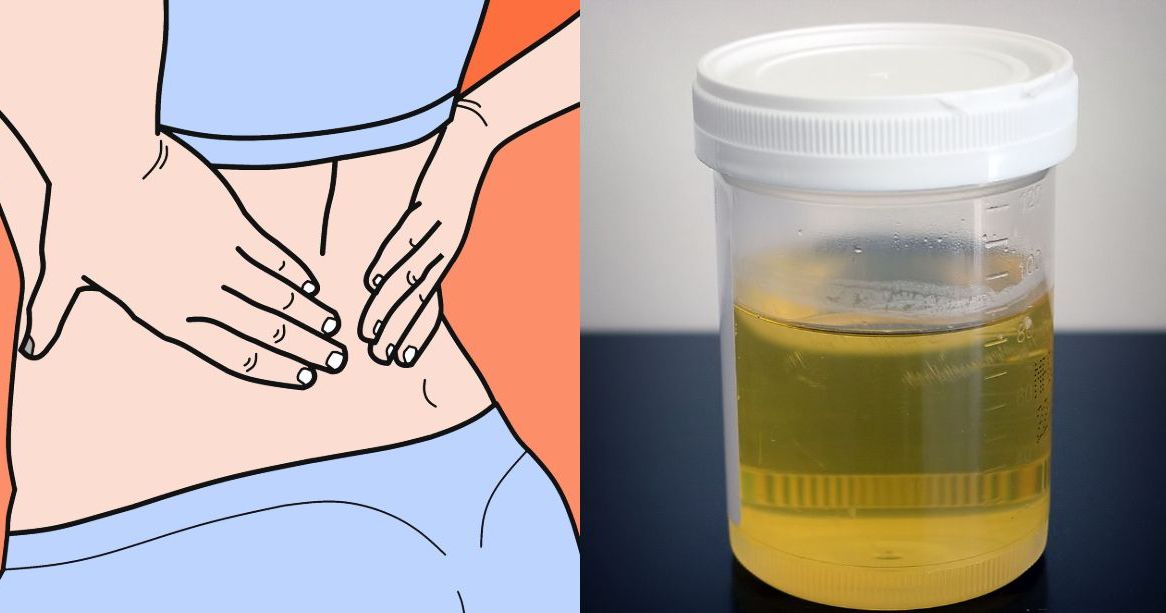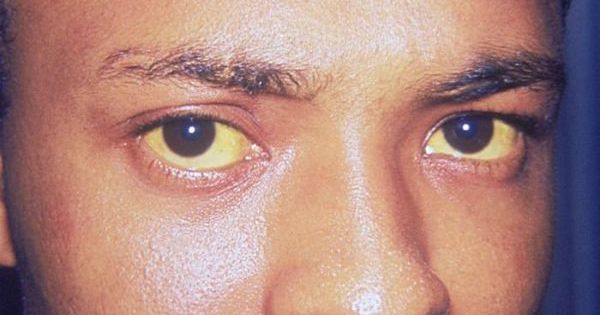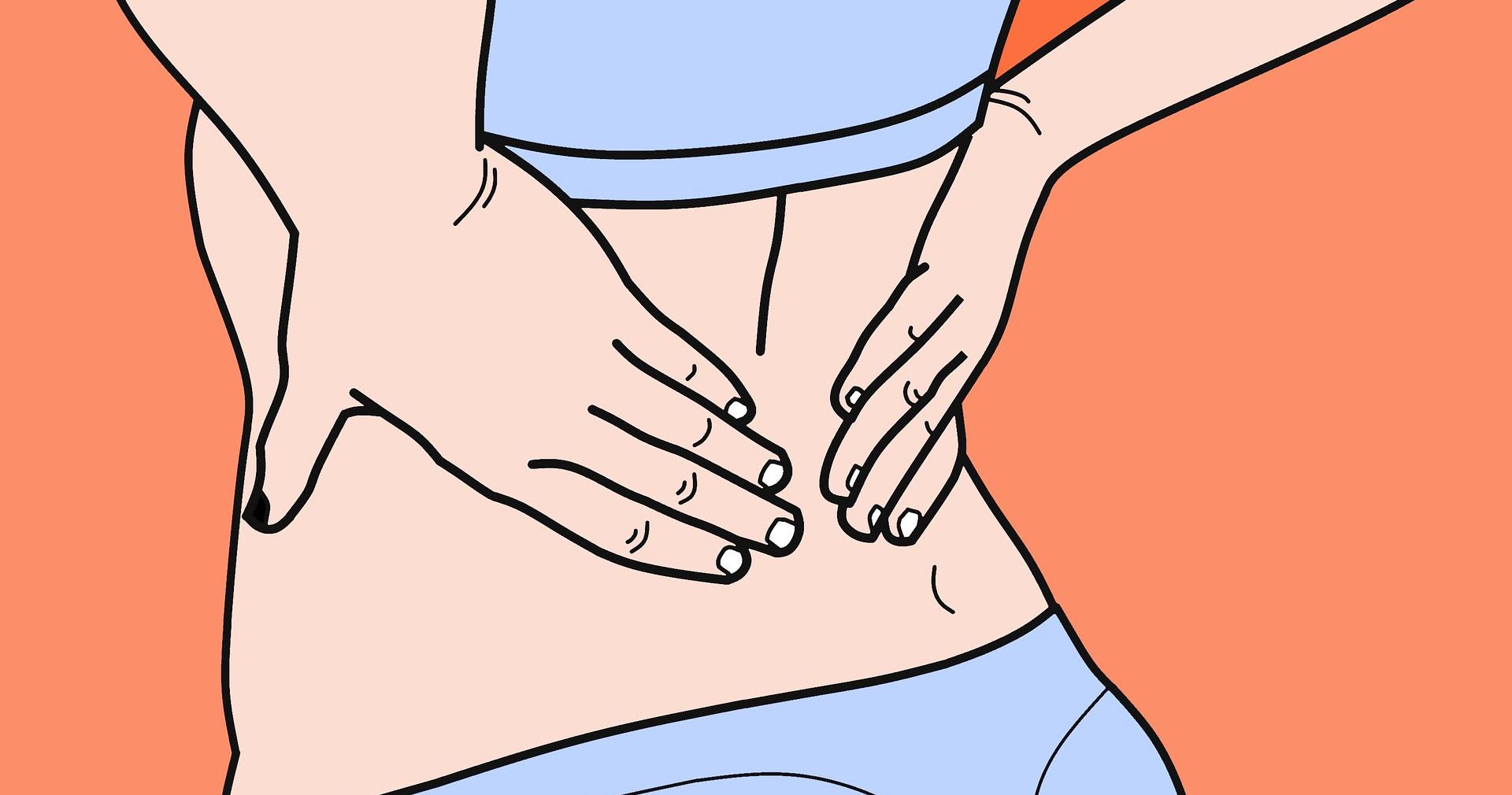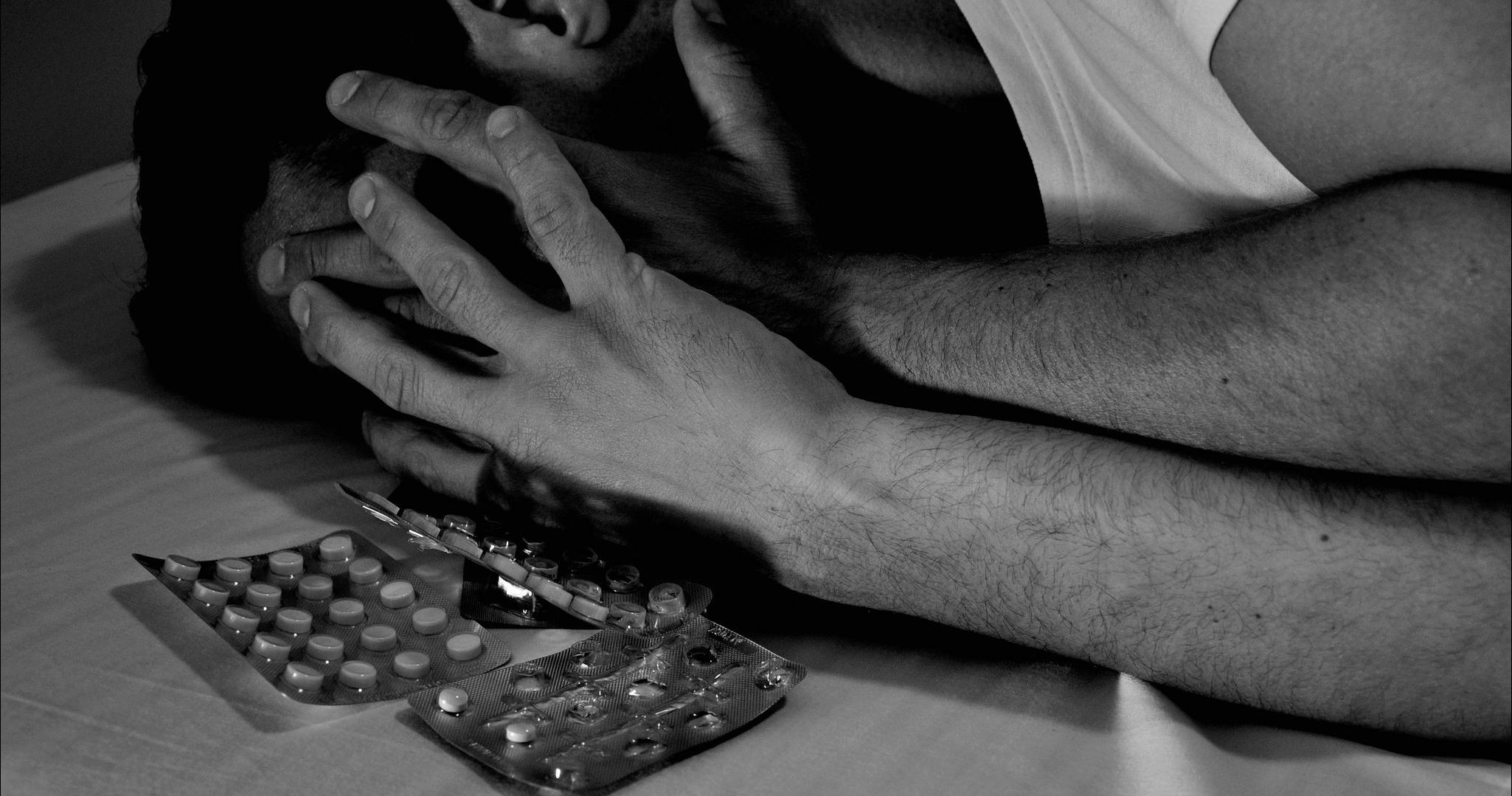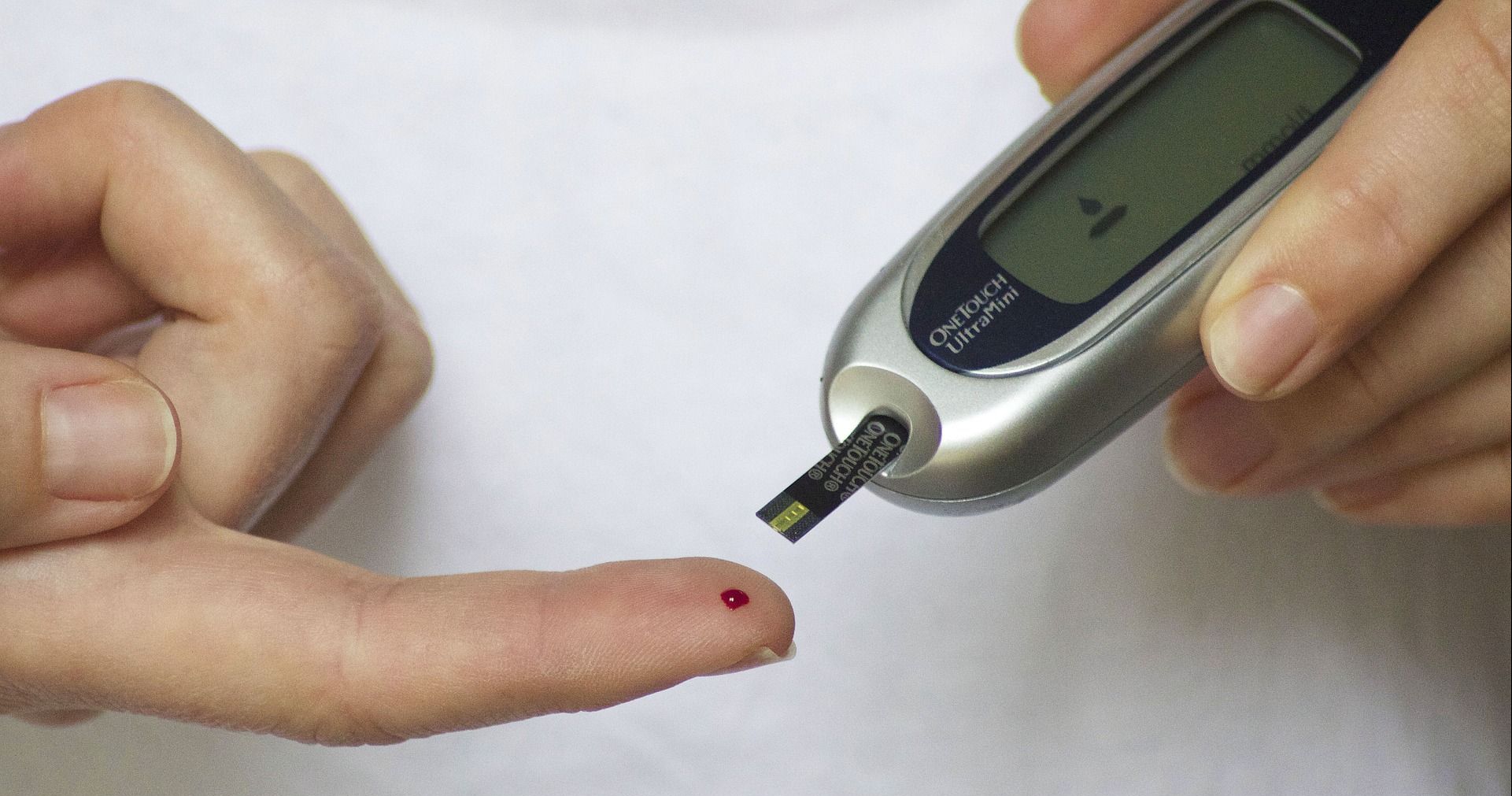Your pancreas is a useful little organ, despite the fact that most people have no idea what it's for.
The pancreas, which is found behind your stomach, just under your breastbone level, helps you digest food.
It also releases hormones that balance your blood sugar levels.
Pancreatic cancer is a particularly dangerous disease, because it's painful, spreads quickly, has a high fatality rate, and can be hard to spot.
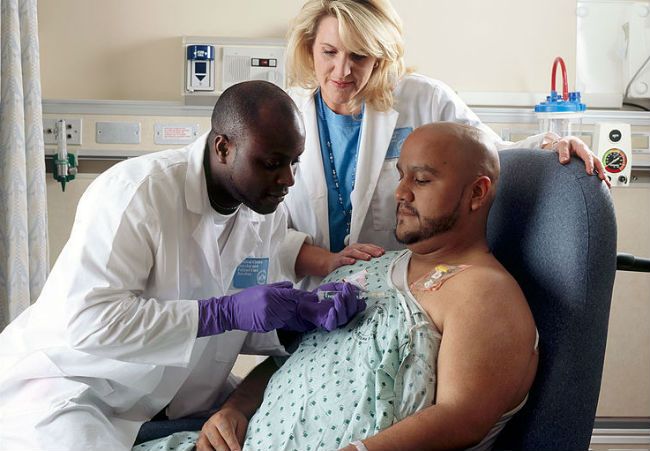
Most Americans aren't diagnosed with the disease until it's too late to do anything.
Don't let that be the case for you: remember these nine symptoms of pancreatic cancer so you can spot them.
1. Yellow, itchy skin
If you know about jaundice, or yellowing skin, you probably associate it with liver disease. But pancreatic cancer can cause it too.
The first sign is usually that the whites of your eyes have turned yellow, or a yellowish, itchy spot has formed on your skin.
As cancer attacks your pancreas, bile meant to break down food gets backed up. Fats and other waste products build up in your body, turning your skin yellow.
Get to the doctor as soon as possible if you notice jaundice.
2. Nausea and vomiting

Pancreatic cancer spreads very quickly to other organs in your body.
As the organs get sick, they create blockages that prevent food from flowing through your digestive system.
Eventually, you start to feel nauseous and vomit regularly. You may also notice persistent pain in your stomach, especially after you eat.
These changes are usually connected with sudden weight loss, which you'll learn more about further down this list.
3. Stomach and back pain
Try putting a finger just below your breastbone, pointing towards your back. Your pancreas is on this line, towards the back of your abdomen.
When it gets sick, you'll notice a dull, constant pain in that area.
Often, the pain will spread to your sides, stomach, or further down your back.
It's caused by sick organs that are pressing on other organs or nerves nearby.
Be careful not to mistake these symptoms for usual aches and pains.
4. Depression
Most of the time, we think of depression as an isolated condition that's not connected to the rest of your body.
It can be really confusing when you have depression and other conditions that cause body pain and discomfort.
If you have a history of depression or anxiety, this may not be a symptom of pancreatic cancer.
But if you think your nagging body pain, fatigue, or recent weight loss are making you depressed, see a doctor for important tests.
5. Blood clots

The most common type of blood clot is a clot in the leg called deep vein thrombosis, or DVT.
There are plenty of causes for these blood clots, including sitting too long in an uncomfortable position.
But pancreatic cancer increases your risk of forming blood clots, which you can recognize from their pain, swelling, redness, and warmth.
These can be painful, and even dangerous is they pass to your lungs (which is called a pulmonary embolism).
Don't assume blood clots are caused by cancer, but if you've started to have them regularly, see a doctor.
6. Discolored urine and stool
Pancreatic cancer patients will notice changes to both their urine and bowel movements as the disease affects their body.
Bile build up caused by damaged organs collects in the bloodstream, turning your urine a dark "tea" shade.
Meanwhile, "greasy" or clay-colored stool is another sign of bile buildup.
It can be gross to scan your bowel movements, but they reveal so much about your health.
7. Bloating
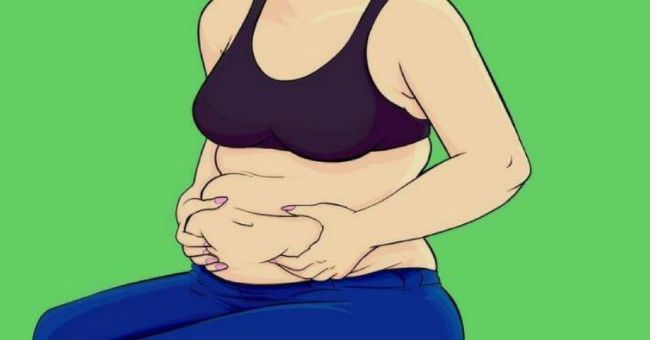
Bloating is a tricky symptom. Most of us deal with it already, usually because of our diet or eating habits.
But pancreatic cancer can distend your stomach, making you look "pregnant" even when your stomach is empty.
Even if you don't notice other signs of pancreatic cancer, take your bloating seriously.
It's also a sign of ovarian cancer, and other serious health issues that are hard to detect.
8. Unexplained weight loss
The damage to your organs caused by this quick-spreading cancer messes with your digestive system.
As it gets harder for your body to move and digest food, you begin to lose weight no matter what you eat.
If you notice sudden, serious weight loss without changes to diet or exercise, you should be concerned.
The same goes for a sudden loss of appetite that can't be explained by day-to-day stress and metabolism changes.
9. Diabetes
The Mayo Clinic reports that 40% of pancreatic cancer patients were diagnosed with diabetes in the months before doctors found they had cancer.
The pancreas creates insulin, which regulates your body's blood sugar levels.
Don't assume that your diabetes is linked to cancer, because there are so many other causes for this chronic disease.
But if you're in good health and very suddenly develop diabetes, ask your doctor to run some tests.
If you experience any of these symptoms suddenly, persistently, or combined with other symtoms on the list, see your doctor.
Here's more helpful health advice:
- 10 health myths everyone believes - even though they shouldn't.
- Here's how to do a self health check-up to save time and money.
- 21 strange symptoms that could mean big health trouble.
[H/T: Mayo Clinic, Reader's Digest]
